
Get notified when a new episode drops
SIGN UP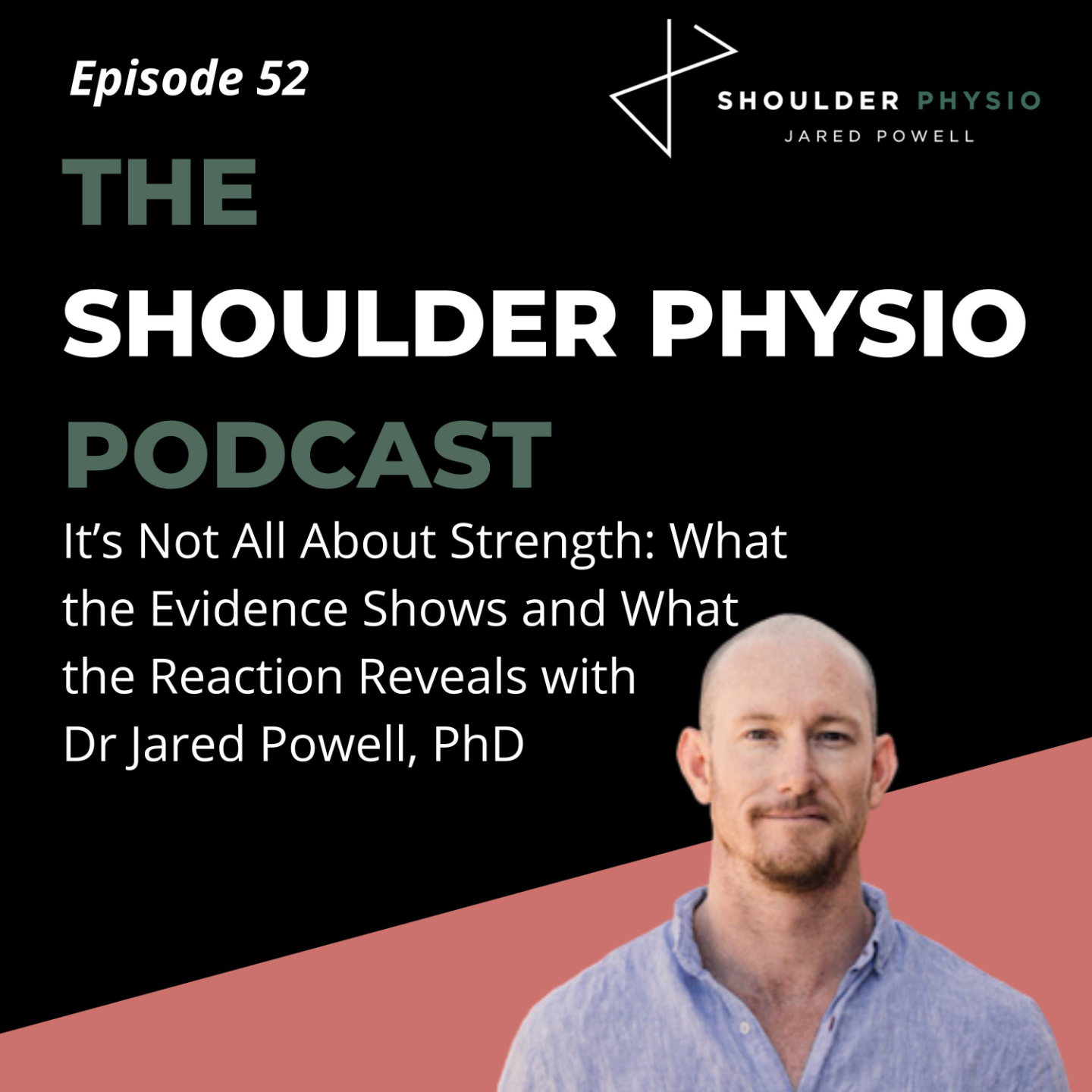
In this episode, I discuss our recently published BJSM editorial “It’s Not All About Strength” ; what the paper argues, why we wrote it, and what the evidence says about mechanisms of exercise-related pain relief in musculoskeletal conditions.
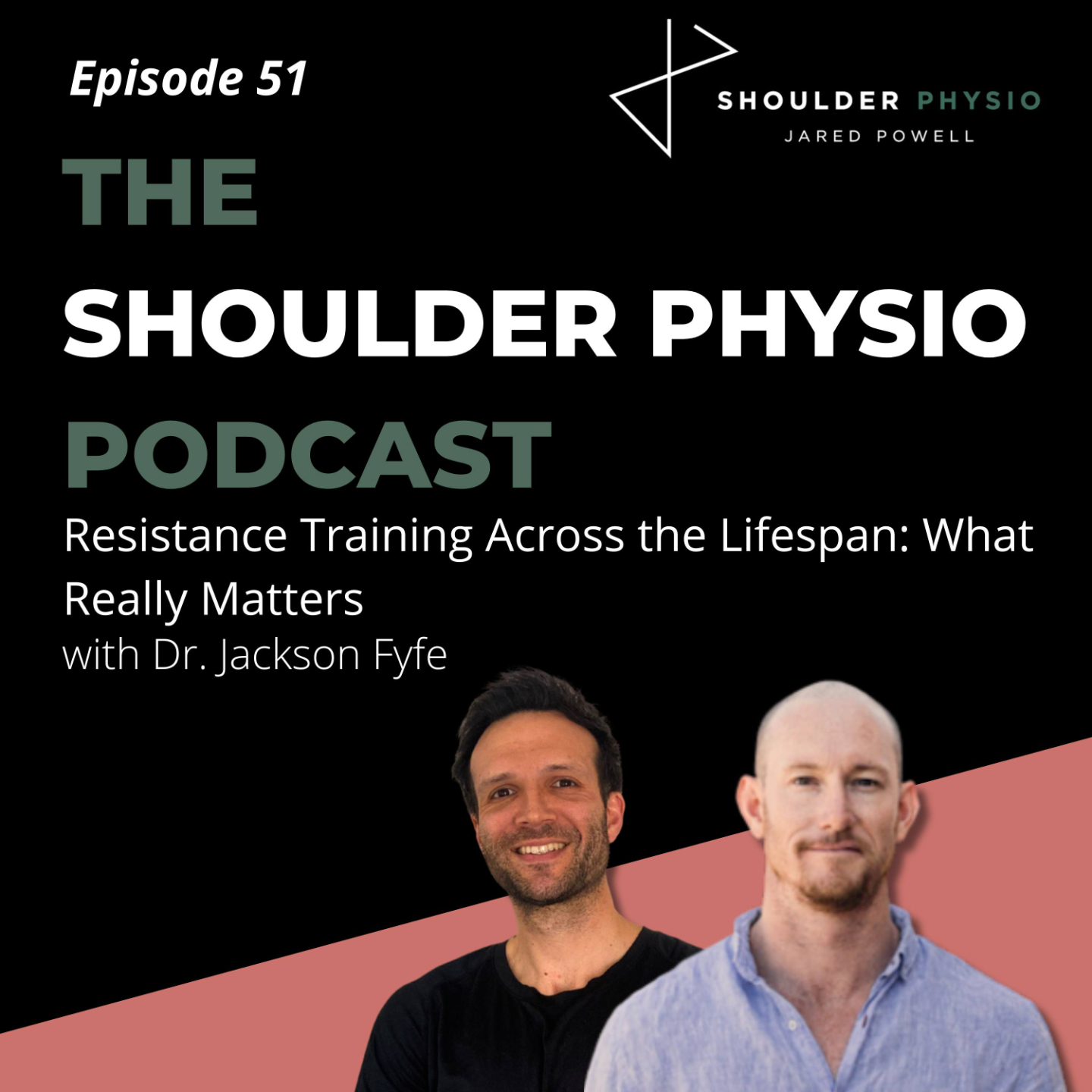
In this episode, Jared Powell is joined by Dr. Jackson Fyfe, exercise scientist and Senior Lecturer at Deakin University, to explore the science and practicality of resistance training across the lifespan.
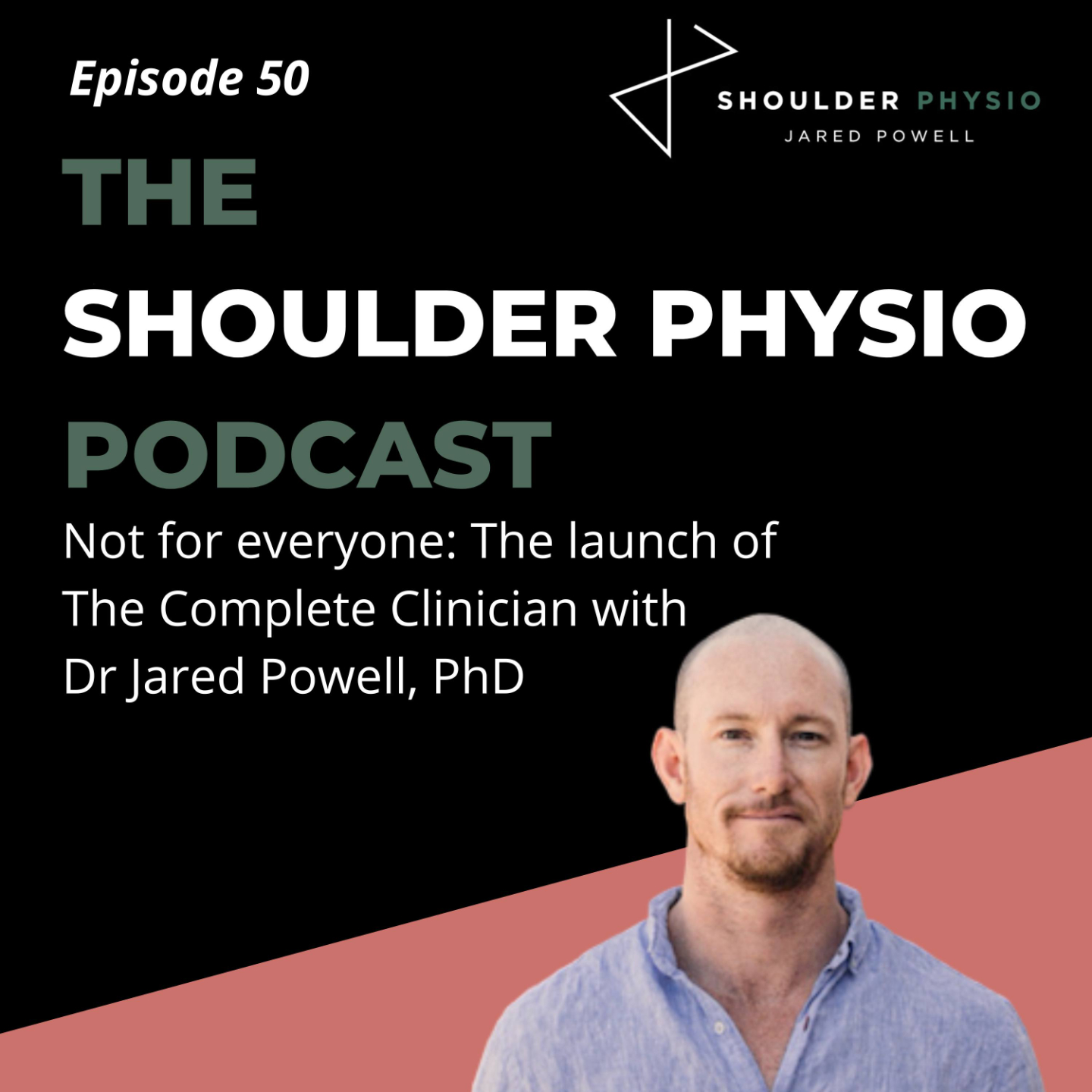
In this episode, Jared announces the launch of The Complete Clinician, a new mentorship and education community for MSK professionals who want more than recycled CPD. He explains why this platform exists, what’s inside, and who it’s designed for. From monthly PhD-level lectures to the Brew & Review journal club, structured learning modules, and The Clinician’s Compass, this is a second education for those who refuse to be average.
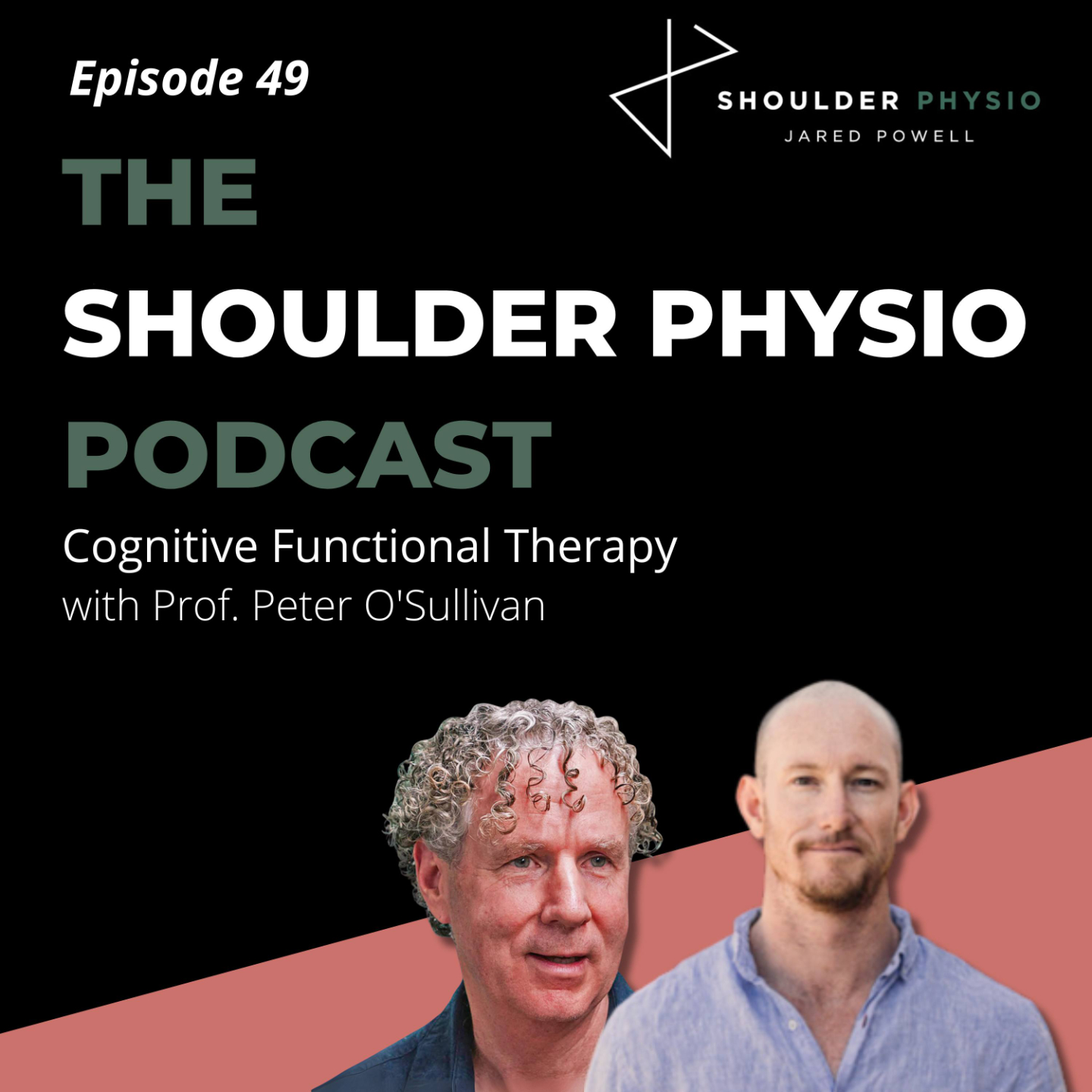
In this candid and wide-ranging conversation, Dr Jared Powell is joined once again by Professor Peter O’Sullivan, one of the most influential voices in musculoskeletal care.
Pete unpacks the rationale and findings of the landmark RESTORE trial published in The Lancet, which provides some of the most compelling evidence to date for cognitive functional therapy (CFT) in people with chronic low back pain. He discusses how CFT works, its philosophical divergence from traditional “find-it, fix-it” approaches, and how it centres the patient’s experience, goals, and context.

In this solo episode of The Shoulder Physio Podcast, Dr Jared Powell explores a deceptively simple question: How much benefit does rotator cuff surgery need to provide to be considered worthwhile?
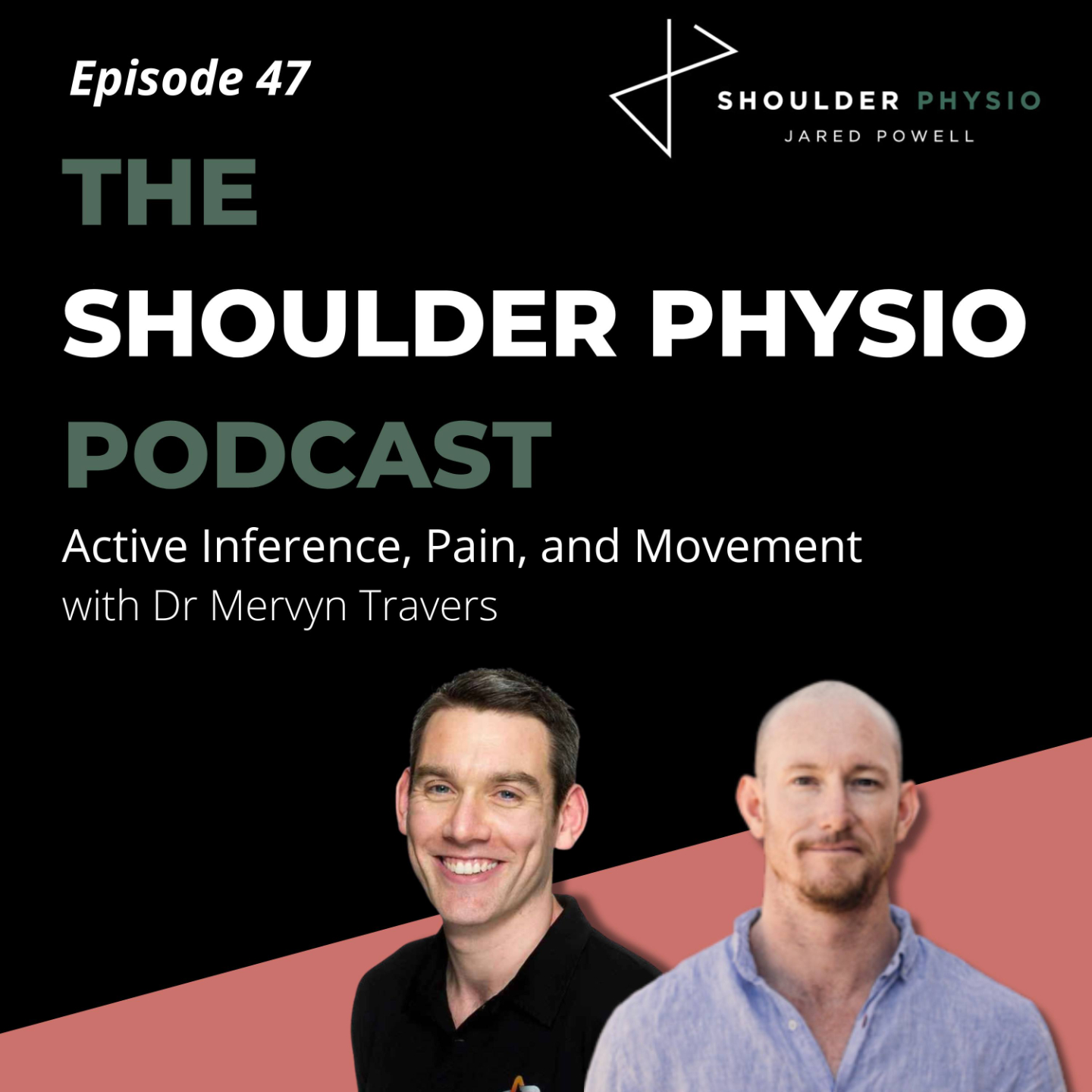
In this episode of The Shoulder Physio Podcast, Dr Jared Powell sits down with Dr Mervyn Travers—physiotherapist, S&C coach, and researcher—to explore one of the most compelling frameworks in contemporary pain science: active inference.

In this episode, Jared Powell sits down with Professor Gordon Guyatt, the physician and researcher who coined the term evidence-based medicine (EBM). They unpack the origins of EBM, why it’s often misunderstood, and how it continues to shape modern healthcare.
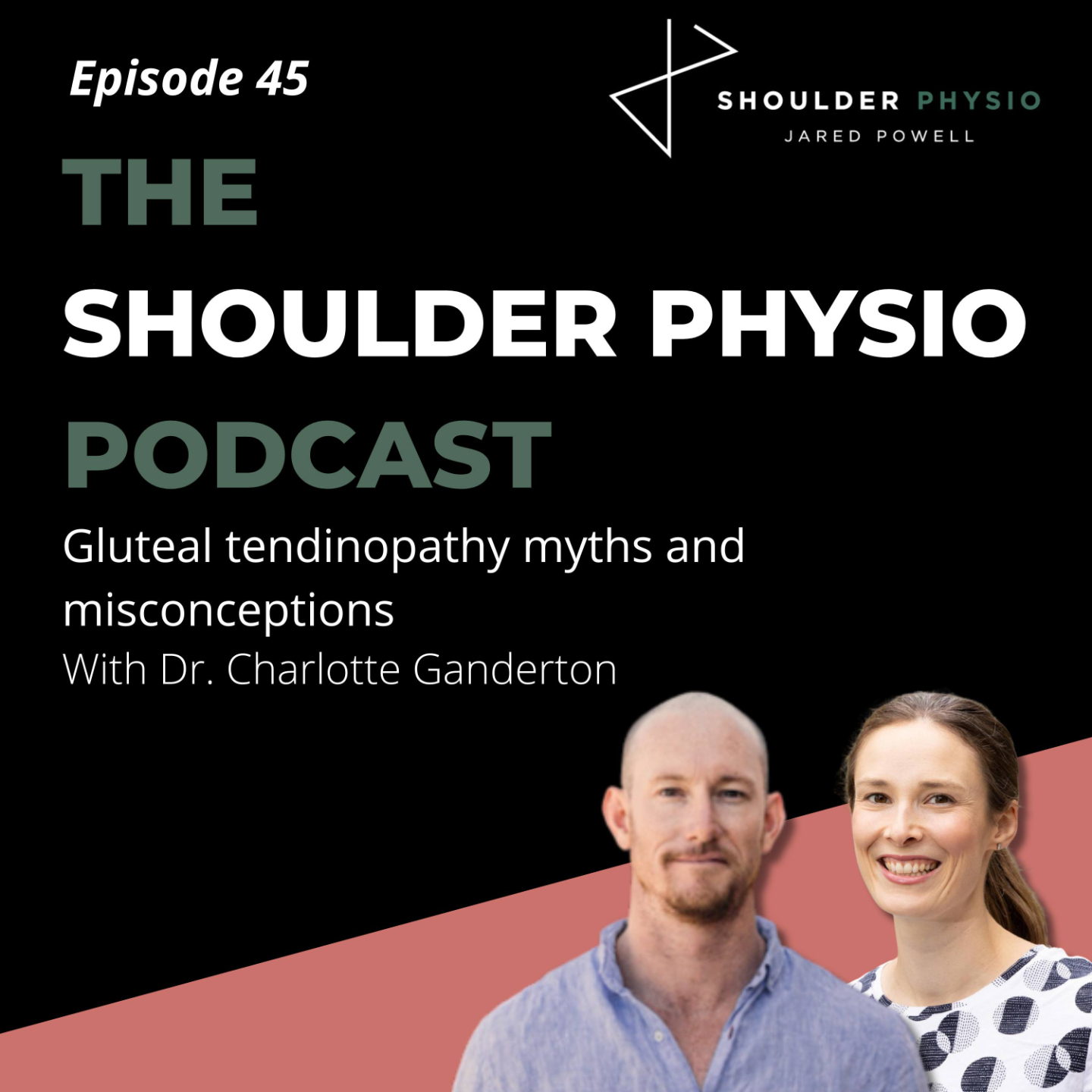
In this episode of The Shoulder Physio Podcast, Dr. Jared Powell sits down with Dr. Charlotte Ganderton, a physiotherapist, researcher, and senior lecturer at RMIT University. Charlotte shares insights from her latest research on gluteal tendinopathy, breaking down common misconceptions about imaging, corticosteroid injections, and the infamous clam exercise.

In this episode of The Shoulder Physio Podcast, I am interviewed by my wife, Tara, about my recently completed PhD.

In this episode of The Shoulder Physio Podcast, I am joined by Rich Willy, PhD to discuss bone stress injuries. Rich is one of the foremost experts in the world on bone stress injuries, and it was a real pleasure to sit down with him for an hour to chat all things bone.

In this episode of The Shoulder Physio podcast, I am joined by Chris Neason and Claire Samanna to discuss their recently published randomised controlled trial exploring running as a treatment for chronic low back pain.

In this episode of The Shoulder Physio podcast, I am joined by Dr John Kuhn, who is an orthopaedic surgeon and researcher from the United States. Doctor Kuhn and his colleagues, through the MOON shoulder group, have published several high impact studies investigating the management of individuals with rotator cuff tears and the results of these studies have caused some controversy (good controversy, that is).

In this episode of The Shoulder Physio podcast, I am joined by Leanne Bisset, who is the queen of tennis elbow, seriously. Leanne is an associate professor at Griffith University on the Gold Coast, Australia with a keen interest in upper limb tendinopathy. Leanne also has extensive experience as a clinician, which makes Leanne a balanced voice of reason.

In this episode of The Shoulder Physio podcast, I am joined by Tim Gabbett, who is the training load master. Tim has an incredible resume as both a coach and scientist and recently featured in the top 10 of a list ranking sports scientists from around the world.

In this episode of The Shoulder Physio podcast, I am joined by Caitlin Jones, who has recently published a world first randomised placebo controlled trial in the Lancet journal on opioids for acute neck and low back pain.

In this episode of The Shoulder Physio Podcast, I am joined by Rachelle Buchbinder and Ian Harris. Rachelle and Ian are academic doctors who still see and treat patients whilst also conducting high quality research. This conversation centres around the concept that modern medical care is sick. Over-treatment, over-diagnosis, junk science, and perverse incentives are just some of the issues plaguing modern medicine.

In this episode of The Shoulder Physio podcast, I am joined by Kim Bennell, a professor and research physiotherapist from the University of Melbourne. Kim has been involved in designing and implementing dozens of clinical trials over her many years of research and is a true giant of the physiotherapy profession.

In this episode of The Shoulder Physio podcast, I am joined by Amy McDevitt, an associate professor and clinician at the University of Colorado. Amy shared her perspective on manual therapy and the importance of unraveling the mechanisms behind this treatment approach.

Patello-femoral pain is a common, and at times, debilitating condition of the knee that can impact people across the lifespan. Professor Bill Vicenzino is a world leading expert on this topic and to that end I've enticed him onto the show to give us the ins and outs of this tricky condition. This is truly a must listen episode with a real pioneer of physiotherapy about a very common and important musculoskeletal condition.

When a patient comes to see a physiotherapist, or any health care professional, how much better does that patient need to get to make a treatment worthwhile? This is an important question because we're constantly making treatment recommendations to patients, day in-day-out, but based on what? My guest for this podcast, Harrison Hansford, reckons a lot of our treatment decisions should be made with consideration of something called the Smallest Worthwhile Effect, which is actually surprisingly easy to understand. Enjoy!

We're constantly told, even lectured, about the importance of exercise for most non-traumatic musculoskeletal pain presentations, shoulder pain included. We assume it works for all people across time and space, but is this true? Are there factors that might influence whether exercise will help an individual with shoulder pain or not? What are these factors and can we influence them? Listen on to hear Emily and Andrew from The Knowledge Exchange interview me about these very interesting questions.

Every iconic scientist has a quote emphasising the importance of uncertainty and doubt that underpins the scientific attitude. This holds true as much for fundamental physics and biological science as it does for health science, probably far more so in the case of health science. For we are complex, non-linear creatures, each with different stories, backgrounds, contexts and circumstances. Because of this, clinical uncertainty is ubiquitous, it's everywhere, but this should not paralyse us according to my guest on this episode, Nathalia Costa, PhD. Enjoy.

Pilates exercise seems to help people with chronic low back pain...but how? What are the causal mechanisms underpinning the apparent effectiveness of Pilates? Does it activate the multifidus and transeversus abdominis muscles? Does it reduce fear and improve confidence? Both or neither? To shed some light on this question I have invited Lianne Wood on to the show, who, incidentally, has a paper on this very question! What a lovely coincidence.

What exactly is a placebo effect? When you try and pin it down, it's confusing. Technically, it's something inert that produces an effect...how can there be an effect without a mechanism? Prof. Steve Kamper is here to help bring clarity to the issue.

Science is ubiquitous. But what is it? Everyone talks about science and the significance of being scientific but nailing down just what this means for clinical practice in physical therapy is somewhat elusive. To clear all this up, I’m joined by the Science Pt, Erika Meira. Erik is a sharp and eloquent communicator about science and its application to physical therapy. You don’t want to miss this one.

Exercise for knee osteoarthritis is a non-negotiable and effective intervention, right? Well, maybe it’s not so clear. Strong evidence seems to be dropping every month challenging the privileged position that exercise occupies for managing knee osteoarthritis. Front and centre is the infamous DICSO trial published in 2022 which will serve as the foundation for our conversation today. We have Marius Henriksen and Christian Barton on the show to do intellectual battle and figure out just what role exercise plays for managing people with knee osteoarthritis.

Tendinopathy: Is it a simple case of tendon overload that can be fixed with eccentric exercise or friction massage? What's the deal with inflammation? Is there a role for adjunct therapies such as biologics and medications? Can physios, surgeons and sports physicians ever get along when it comes to managing tendinopathy? My guest, Professor Neal Millar is here to let you know.

Strengthening exercise is a popular and effective treatment for shoulder pain. But...is the benefit of strengthening exercise derived from getting stronger or are there other causal mechanisms underpinning the effect? Listen to find out!

Can we prevent injuries from happening? All of them? If we can't prevent ALL injuries should we move away from using the term prevention? Or is all this boring and irrelevant linguistic games that don't move the needle for clinical practice? I for one am fascinated by this discussion and I reckon you will enjoy it too. Franco, as always, has the ability to cut through fluffy opinions and statements with hardcore and unabashed science and I love it!

In this solo episode I discuss the evidence underpinning the use of platelet rich plasma injections for shoulder pain. Platelet rich plasma makes total sense on the surface, but do empirical findings support this? Should we continue down the pathway of research for platelet rich plasma, or move on?

In this episode I speak with eminent sport scientist and coach, John Kiely. John is infamous for challenging dogmatic training principles in sport science, chiefly periodisation theory. Our conversation starts with periodisation theory and then goes to some interesting locations, stopping momentarily at homeostasis, allostasis, general adaptation syndrome (GAS), predictive processing, the biomedical model, sets and reps and much, much more.

An entrenched assumption is sport and exercise medicine, going back decades, has been that ACL (anterior cruciate ligament) injuries do not heal. Not ever. However, like many dogmatic beliefs in the health and fitness sector, this assumption appears to have been seriously wrong. Dr Stephanie Filbay joins me to discuss her latest paper about the healing capacity of the ACL and what this means for your clinical practice.

Osteoarthritis (OA) is a leading cause of pain and disability. OA is also seems to be associated with several myths and misconceptions about how it is caused and how it might be managed. To cut through some of this mythology, I invited Professor David Hunter on the show for a 'no holds barred' conversation.

In this podcast, I discuss the scapula with Filip Struyf, PhD. We attempt to answer the measurement error question and how this influences everything thereafter! After all, if we can't accurately measure something it becomes impossible to prove the validity and lacks any utility in clinical practice.

Feeling stiff is a familiar feeling for all of us. But does feeling stiff mean our joints are actually stiff? Or is there more to it. Tasha Stanton PhD is a clinical neuroscientist who has performed research directly addressing this question. This is a fascinating conversation and I hope you enjoy.

The Nordic hamstring exercise has enjoyed mostly good press with respect to injury prevention effectiveness. That is until recently. Professor's Franco Impellizzeri and Kristian Thorborg kindly and clearly join me in conversation to help us understand the evidence for and against this exercise.

I am joined by Connor Gleadhill to discuss causal inference. Connor is a PhD candidate exploring causal inference and is someone who speaks fluently about complex topics (must be the smooth Irish accent!). Causal inference is basically the pursuit of estimating how and why things happen.

The biopsychosocial model is ubiquitous in modern health care but what is it at its core? Is it accurately described and used in research and clinical practice? To help make headway into these questions and more, I'm joined by Ben Cormack. Ben is a MSK therapist from England who has developed a special interest in the philosophy and implementation of the biopsychosocial in MSK health care.

Cognitive biases are as much of a problem as they are fundamental to the human condition. They exist, but can we mitigate them? What common cognitive biases afflict health care? Jarod and Jared shoot the s**t around these interesting questions.

In this episode I am joined by Scot Morrison to discuss the envelope of function model, as proposed by Scott Dye in the 1990s. The envelope of function has gained increasing acceptance over the past decade and I thought a deep dive into this concept was needed to highlight the potential pro's and con's of implementing this into clinical practice.

Evidence changes and so should our beliefs. Peter O'Sullivan details his own radical change in beliefs and research agenda when it comes to low back pain and talks us through what instigated this about-face.

In this episode I am joined by Greg Lehman and Andrew Lock to discuss lifting technique/mechanics and it's relevance to low back pain/injury. The research in this area is inconclusive so I've brought Greg and Andrew on to clarify some contentious topics.

Pain is common and vital for survival. Chronic pain, though, is less vital and can significantly impact on the quality of life. Bronnie Thompson, PhD, believes it is possible to lead a fulfilled life in the presence of persistent pain.

I had a conversation with the wonderful team at E3 rehab about the fuzzy and entrenched diagnostic label that is shoulder impingement. Over the 1 hour episode we discuss the history, inaccuracies and potential negative consequences of the term.

I talk to Abby Tabor, PhD, on the interesting topic of predictive processing and how it may relate to understanding and explaining pain. Abby is a physiotherapist who has gone on to become a prolific researcher in the field of active inference.

Pain-related to a tendon, tendinopathy, can be a disabling clinical condition and it is an area with an accumulating evidence base. I talk with Dr. Alex Scott about various interventions to manage tendinopathy, with strong reference to modern research.

Greg is a renowned physiotherapist and chiropractor and is well known for reconciling biomechanics with pain science, which, coincidentally, is the name of his course! We talk about pain, the nuances of it, and the potential simplicity in helping people with pain minimise suffering and disability.

Do we NEED philosophy in health science? Rani makes a compelling case for YES. I tend to agree.

The topic of manual therapy and its role in physical therapy always elicits differences of opinion. In this episode, Adam Meakins and Chad Cook tackle the hard questions and attempt to clarify what manual therapy does (and doesn't) and where it fits into contemporary physical therapy care.

In this video I talk with Kieran Richardson about some of the myths and misconceptions surrounding ACL injury of the. The ultimate question becomes: "is surgery a necessity after ACL injury"?

In this episode, I discuss the scapula with Filip Struyf, PhD. We attempt to answer the measurement error question and how this influences everything thereafter! After all, if we can't accurately measure something it becomes impossible to prove the validity and lacks any utility in clinical practice.

I am joined by the venerable Jeremy Lewis, PhD, to discuss the clinical enigma that is frozen shoulder.
This is a must watch for all clinicians who see people with a "stiff and painful" shoulder.




